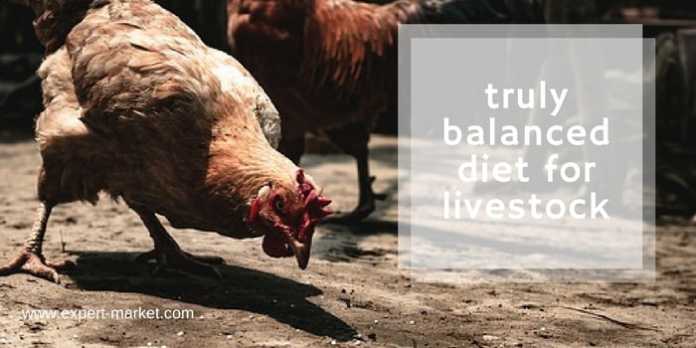There are concerns about the content of feed given to livestock. Grain-based diets have been known to cause severe and even fatal digestive tract problems for animals such as sheep, goats, and cows whose stomachs best digest plants such as grass that has a high cellulose content.
Recent studies have revealed chemical additions might accumulate in the tissue of animals. Consumers are potentially exposed to unwanted chemicals like heavy metals and veterinary drug residue. It is of importance to take into consideration how feed affects the health of livestock, and by extension, the health of those who consume animal products.
Soybeans and Corn
Industrial farming relies heavily on grain. The government subsidizes farmers who produce grain, especially soybeans and corn. Livestock farmers often use soy and corn as the base for animal feed because the protein-rich grains cause animals to achieve market weight sooner and are cheaper than other options.
The subsidies reduce factory farming operating cost by seven to ten percent. The percentages of soy and corn used in animal feeds are 47 and 60 percent respectively. While cheap feed grains result in lower dairy and meat prices to the consumer, grass-fed animals produce meat lower in saturated fats.
There is ongoing research about the health benefits of grass-fed beef. The initial findings indicate there are nutrients in the grass that may be of benefit to consumer health. Great Plains Processing has a feed supplement that contains calcium, copper, iron, magnesium, manganese, zinc, or a blend of zinc, manganese, and copper.
It increases animal production and improves reproductive efficiency. The supplements lead to better immune function and animal health. Environmental waste is reduced, and producer profitability rises.
Pigs and Sows
The USDA agriculture census shows that since late in the 1950s there has been a decrease in hog farms and an increase in the number of hogs per farm. On industrial farms, large herds of pigs are kept in crowded quarters and treated with antibiotics to prevent diseases from spreading.
Many states feed process food waste to pigs. Waste that is not treated correctly can cause swine vesicular diseases, African swine fever, Foot and Mouth Disease, and hog cholera. Contaminated food waste, fed to hogs, can also spread pathogens responsible for foodborne illnesses to humans and other livestock.
Pastured pork production raises on ground covers, standing crops, legumes, and grass. Hogs also require nutrients not provided in a pasture. Vegetables such as fodder beets, kale, and turnips are food sources for the nutrients they need.
Great Plains Processing offers a high-quality nutritional supplement. It improves the performance of pigs and sows. The nutrients include trace minerals, amino acids, and peptides. Incorporating the supplement into a balanced diet drives feed intake and leads to optimal health and growth.
Poultry
Poultry farms raise chickens on feed formulas meant to maximize weight gain and growth. Often, the feed has medically essential pharmaceutical drugs that represent a threat to humans when overused. Pasturing chickens alleviates health stresses.
Chickens cannot be raised solely on grass. They need a diet that includes dried alfalfa, soybeans, oats, and corn. Great Plains Processing provides a companion to poultry diets that maintains a consistent bioavailability throughout the poultry digestive process.
Summary:
Relying too heavily on grain-based feed can have negative consequences for human health, the environment, and animal health. Natural eating habits, supplemented by products such as those offered by Great Plains Processing, provide a truly balanced diet for livestock.
































